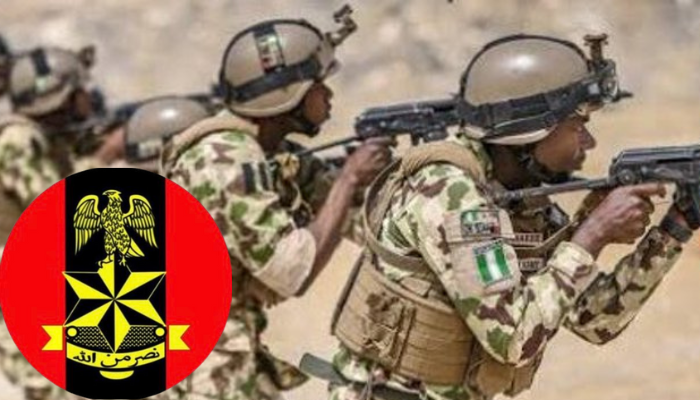Paragraph 1: Contextualizing the Conflict
Nigeria has been grappling with the menace of extremist groups for over a decade. The rise of Boko Haram in the northeast region marked the beginning of a protracted conflict that has claimed thousands of lives and displaced millions more. The fragmentation of Boko Haram led to the emergence of the Islamic State West Africa Province (ISWAP), a formidable offshoot that has further destabilized the region. ISWAP, with its declared allegiance to the Islamic State, has demonstrated a sophisticated capacity for violence and territorial control, posing a significant threat to the Nigerian government and its citizens. The group’s activities have ranged from attacks on military installations to the abduction of civilians and the imposition of its harsh interpretation of Islamic law in areas under its influence. The ongoing conflict has had a devastating impact on the socio-economic fabric of the affected communities, resulting in widespread poverty, food insecurity, and the collapse of essential services.
Paragraph 2: The Incident at Buni Gari
On May 3, 2025, the town of Buni Gari in Yobe State became the scene of another violent confrontation between the Nigerian Army and ISWAP. The town, situated in a region known for its vulnerability to insurgent attacks, found itself once again caught in the crossfire. According to a brief statement released by the Nigerian Army via its official X (formerly Twitter) account, troops operating under Operation HADIN KAI engaged in a fierce battle against ISWAP fighters who launched an attack on the town. The statement, released amidst the unfolding events, offered limited details about the nature and scale of the attack, promising further information at a later time. This incident underscored the persistent security challenges facing Nigeria and the enduring threat posed by ISWAP.
Paragraph 3: Operation HADIN KAI and Counterinsurgency Efforts
Operation HADIN KAI, a military operation launched by the Nigerian government, represents the nation’s primary counterinsurgency effort against Boko Haram and its splinter groups, including ISWAP. The operation involves the deployment of substantial military personnel and resources to the northeast region with the aim of neutralizing the insurgents, restoring peace, and facilitating the return of normalcy to the affected communities. The Nigerian Army, as the leading force in Operation HADIN KAI, has been at the forefront of combating the insurgency, engaging in numerous operations against the extremist groups. The battle at Buni Gari serves as a testament to the ongoing nature of this conflict and the challenges faced by the military in its efforts to quell the insurgency.
Paragraph 4: The Information Landscape and Challenges
The initial announcement of the Buni Gari attack via a short statement on social media highlights the evolving information landscape surrounding the conflict. While social media platforms provide a rapid means of disseminating information, they can also contribute to the spread of misinformation and speculation. The brevity of the initial statement, while understandably necessary given the immediacy of the situation, left many questions unanswered. This underscores the importance of responsible reporting and the need for official channels to provide timely and accurate updates to avoid the proliferation of rumors and inaccurate information. The challenge of verifying information in conflict zones further complicates the process of obtaining a comprehensive and reliable account of events.
Paragraph 5: The Human Cost and Long-Term Implications
The ongoing conflict in northeastern Nigeria has exacted a heavy toll on the civilian population. The repeated attacks, displacement, and disruption of livelihoods have created a humanitarian crisis of immense proportions. The long-term implications of this conflict extend beyond the immediate loss of life and property. The disruption of education, healthcare, and other essential services has far-reaching consequences, impacting the development and well-being of entire generations. The psychological trauma experienced by those affected by the conflict requires sustained attention and support. Addressing the root causes of the conflict, including poverty, inequality, and marginalization, is essential for achieving long-term stability and peace in the region.
Paragraph 6: The Need for a Comprehensive Approach
The battle at Buni Gari serves as a stark reminder of the complex and multifaceted nature of the conflict in northeastern Nigeria. Military operations alone are unlikely to provide a lasting solution. A comprehensive approach that addresses the underlying socio-economic and political factors that fuel the insurgency is crucial. This requires collaborative efforts from multiple stakeholders, including the government, civil society organizations, international partners, and local communities. Initiatives aimed at promoting education, fostering economic opportunities, strengthening governance, and addressing human rights concerns are essential for creating a more stable and secure future for the region. Continued investment in humanitarian aid, coupled with efforts to address the root causes of the conflict, will be vital for building resilience and fostering sustainable peace in northeastern Nigeria.














